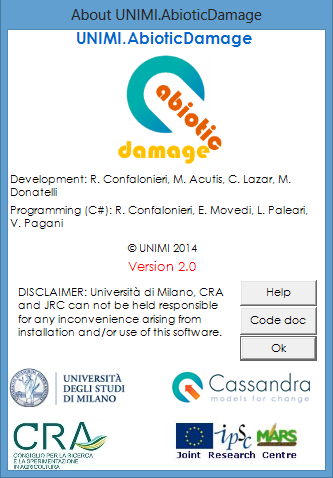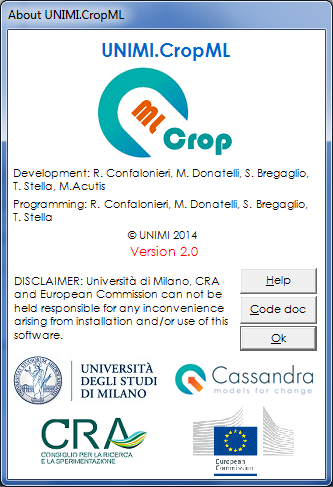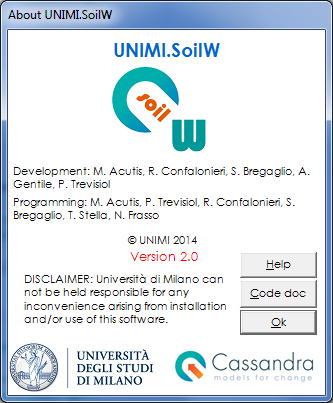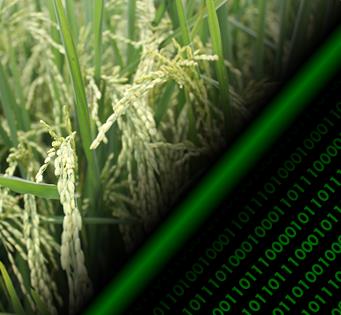Analysis and modelling of processes involved with salt tolerance and rice.
 |
2019 - Crop Science, 59, 1155-1164. |
 |
Tartarini, S., Paleari, L., Movedi, E., Sacchi, G.A., Nocito, F.F., Confalonieri, R. |
Abstract:
Salinity is a worldwide problem for rice (Oryza sativa L.) cultivation, and a number of breeding programs targeting increased salt tolerance are ongoing. A new trait-based mathematical model for salt stress on rice was recently proposed, characterized by a high level of detail in the description of physiological mechanisms dealing with crop response to salinity. In this study, dedicated growth chamber experiments were performed where three rice cultivars with different degrees of tolerance were grown under different salinity levels. The aim was to improve the understanding of physiological mechanisms like Na+ uptake and sequestration in structural tissues, and to validate the model using new datasets where temporal dynamics in plant response to salt stress were analyzed. Model evaluation demonstrated strong agreement between measured and simulated dry weights of plant organs (e.g., R2 = 0.88–0.97 for aboveground biomass), [Na+] in plant tissues (R2 = 0.73–0.88), and green leaf area index (R2 = 0.71–0.99). These results demonstrate the reliability of the model and support its adoption within studies aimed at analyzing or predicting the response of different cultivars to temporal dynamics of Na+ concentration in soil and water.
 |
Keywords: Breeding programs, Oryza sativa L., salinity stress, salt tolerance, trait-based model |
 |
DOI: 10.2135/cropsci2018.10.0609 |
 |
AbioticDamage A software component for the impact of abiotic damages on crop productions |
 |
CropML CropML is a framework-independent component implementing a variety of approaches for crop growth |
 |
SoilW A software library implementing different approaches for soil hydrology simulation |
- Comparison of three calibration methods for modeling rice phenology
- A simple pipeline for the assessment of legacy soil datasets: An example and test with soil organic carbon from a highly variable area.
- A high-resolution, integrated system for rice yield forecasting at district level.
- Downscaling rice yield simulation at sub-field scale using remotely sensed LAI data.
- Analysis and modelling of processes involved with salt tolerance and rice.
- Estimating crop nutritional status using smart apps to support nitrogen fertilization. A case study on paddy rice.
- Development of generic crop models for simulation of multi-species plant communities in mown grasslands.
- Quantifying uncertainty due to stochastic weather generators in climate change impact studies
- Predicting rice blast disease: machine learning versus process-based models
- Boundaries and perspectives from a multi-model study on rice grain quality in Northern Italy.







